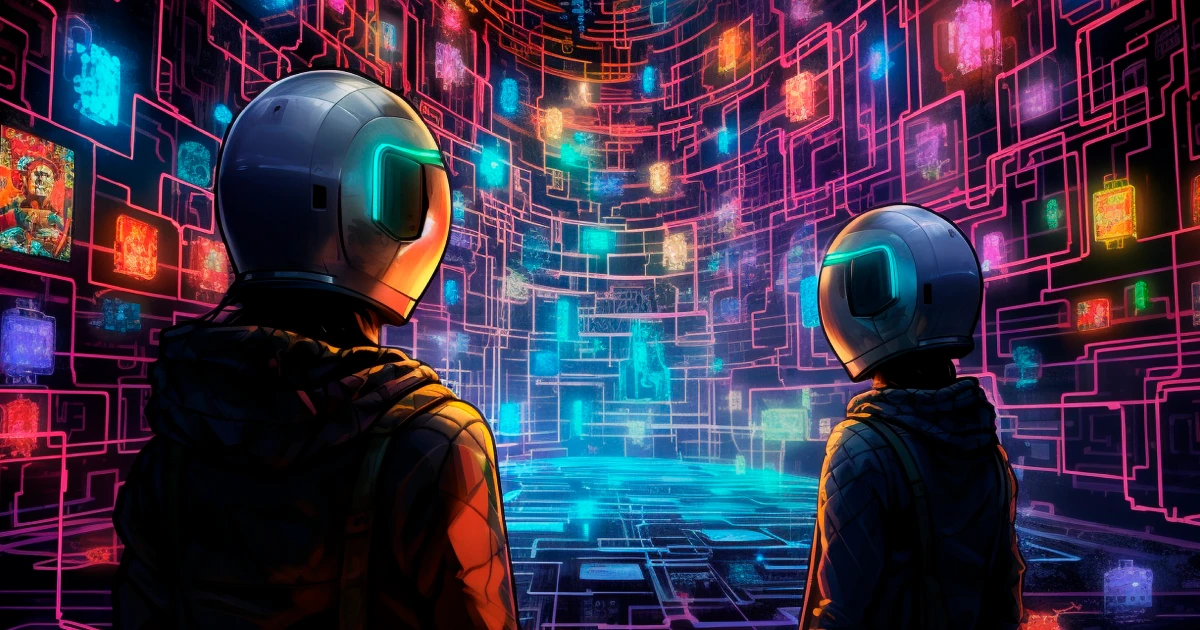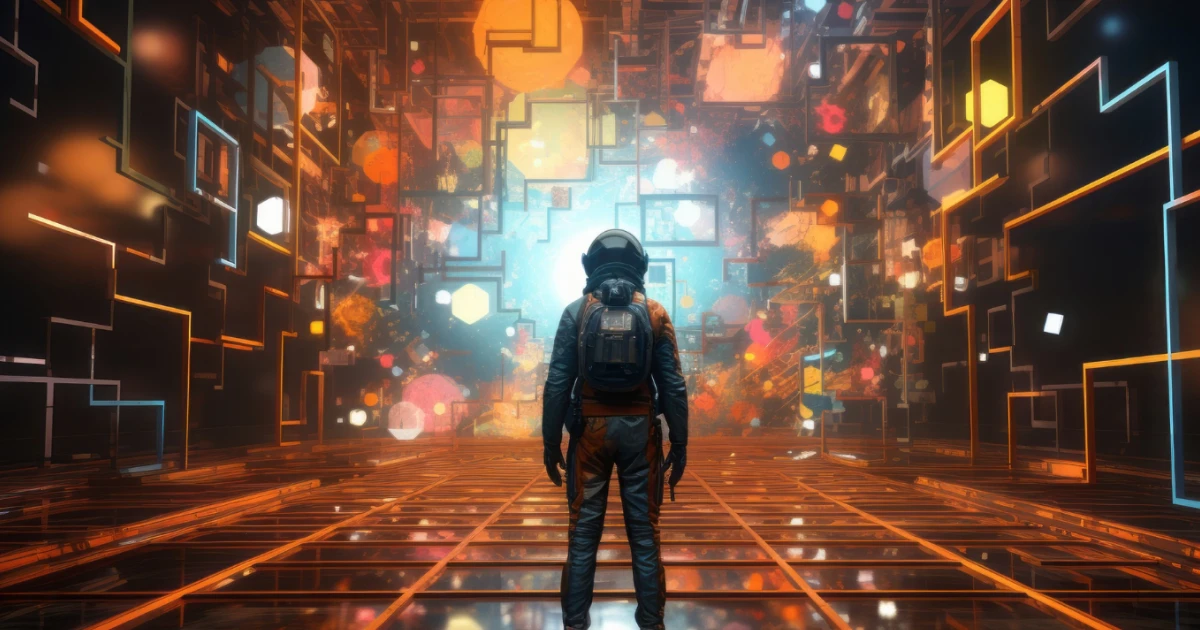Blockchain technology is reshaping the gaming industry, and decentralized finance (DeFi) is playing a key role in this transformation. The rise of Cross-Chain Gaming and DeFi Integration is allowing for a more connected and decentralized gaming ecosystem, where players can transfer assets across different blockchain networks. This integration opens up new possibilities for earning, trading, and staking assets, making it a game-changer for both the gaming and crypto industries.
The Evolution of Cross-Chain Gaming
Cross-chain gaming enables seamless movement of assets, tokens, and currencies across different blockchain networks. Blockchain games traditionally locked players into their own ecosystems, allowing them to use assets only within the specific blockchain the game was built on.. This restriction limited the potential of decentralized games. However, with this, players can now transfer their assets from one blockchain to another, broadening the scope of in-game economies.
For example, a player who earns tokens in one game on Ethereum can transfer those tokens to a different game on Binance Smart Chain or Solana. This flexibility boosts the utility of in-game assets and enhances the gaming experience. Players no longer have to worry about being stuck in one ecosystem.
DeFi and Gaming: A Perfect Match
The intersection of decentralized finance and gaming offers more than just asset transferability. Cross-Chain Gaming and DeFi Integration introduces financial mechanisms directly into gaming platforms. DeFi allows gamers to stake, lend, or borrow their in-game assets just like traditional financial assets. This enables players to earn passive income through staking or lending, without even playing the game.
Decentralized exchanges (DEXs) allow players to trade gaming tokens or NFTs between different blockchains. A token earned in a game can be traded on a DeFi exchange for another asset, such as Ethereum or USDC, or even staked for more rewards. This intertwining of DeFi and gaming brings real-world financial value to virtual in-game assets, making the gaming experience more rewarding.

Key Features of Cross-Chain Gaming and DeFi Integration
- Interoperability: The most significant feature of Cross-Chain Gaming and DeFi Integration is its ability to facilitate the seamless movement of assets between different blockchain ecosystems. Players can move their NFTs, tokens, and currencies across different games built on various blockchains, without any hurdles. This interoperability expands gaming possibilities and encourages more decentralized and open ecosystems.
- Ownership and Control: DeFi empowers gamers by giving them ownership and control over their in-game assets. Unlike centralized gaming platforms where the company owns and controls all the digital assets, decentralized platforms put ownership back into the players’ hands. Players can sell, trade, or use their assets on different platforms as they wish, thanks to cross-chain technology.
- Earning Potential: With DeFi integration, games become more than just entertainment platforms. They turn into financial ecosystems where players can earn income through various mechanisms. From staking tokens to lending in-game assets, DeFi unlocks earning potential for gamers beyond just playing the game.
- Scalability: Blockchain games often face scalability issues, particularly in networks like Ethereum where gas fees are high. Cross-Chain Gaming and DeFi Integration addresses this issue by enabling games to operate across multiple blockchains. Developers can choose networks that offer faster transactions and lower fees, providing a better gaming experience for users. For example, high-value transactions can occur on Ethereum, while high-speed microtransactions can happen on faster chains like Polygon or Solana.
- Liquidity: By integrating with DeFi protocols, cross-chain games can access liquidity from various DeFi pools. This ensures that in-game tokens and assets can be traded on decentralized exchanges, increasing liquidity and enhancing the value of in-game economies.
Real-World Examples of Cross-Chain Gaming and DeFi Integration
Several blockchain projects are already capitalizing on the benefits of Cross-Chain Gaming and DeFi Integration. These platforms are setting the stage for the future of gaming.
- Axie Infinity: A pioneer in the blockchain gaming space, Axie Infinity has integrated DeFi into its gaming ecosystem. Players can stake their in-game tokens to earn rewards or trade them on decentralized exchanges. The game operates across Ethereum and the Ronin sidechain, enabling seamless transfer of assets and reducing transaction fees.
- The Sandbox: A decentralized virtual world where players can create, own, and monetize their gaming experiences, The Sandbox has integrated DeFi protocols, allowing players to buy and sell virtual land using the SAND token. The platform has cross-chain capabilities that allow assets to be traded between different blockchains.
- Polkadot: As a blockchain that specializes in cross-chain interoperability, Polkadot has the infrastructure to support this. Gaming platforms built on Polkadot can easily interact with other blockchains, enabling seamless transfer of assets and tokens across different networks.
- Decentraland: This virtual world integrates DeFi with cross-chain interoperability. Users can buy, sell, and trade virtual real estate, all while interacting with decentralized financial products like staking and lending.
Challenges of Cross-Chain Gaming and DeFi Integration
The potential of Cross-Chain Gaming and DeFi Integration is clear, but addressing certain challenges is necessary to fully realize it.
- Security: Cross-chain bridges, which enable the transfer of assets between blockchains, are often vulnerable to attacks. If a cross-chain bridge is compromised, players’ assets could be at risk. Ensuring the security of cross-chain transactions is a major concern for developers.
- Complexity: Developing a cross-chain gaming platform with DeFi integration can be complex. Each blockchain has its own set of rules, governance models, and security protocols. Integrating multiple blockchains while maintaining a seamless user experience is a technical challenge.
- Regulatory Uncertainty: The integration of DeFi into gaming introduces new regulatory challenges. As decentralized finance evolves, regulators are closely monitoring how financial products integrate into new industries like gaming.. Navigating this regulatory landscape will be critical for the long-term success of cross-chain gaming platforms.

The Future of Cross-Chain Gaming and DeFi Integration
The future of Cross-Chain Gaming and DeFi Integration looks promising. As blockchain technology continues to evolve, more gaming platforms will adopt cross-chain and DeFi solutions to enhance the gaming experience. The ability to transfer assets between different games, earn passive income, and access liquidity will make gaming more rewarding and immersive.
Developers are likely to explore new models of decentralized governance, where players themselves have a say in how the gaming ecosystems operate. Decentralized Autonomous Organizations (DAOs) could allow players to vote on game changes, tokenomics, and in-game economies. This level of community participation will create more democratic and inclusive gaming platforms.
Conclusion
Cross-Chain Gaming and DeFi Integration is paving the way for a new era of blockchain-based gaming. By enabling asset interoperability, empowering player ownership, and integrating DeFi financial mechanisms, cross-chain gaming is transforming how we engage with virtual worlds. As developers overcome challenges related to security and scalability, we can expect to see more games adopt this technology, unlocking exciting opportunities for gamers and investors alike. The future of gaming is decentralized, and cross-chain integration is at the heart of this revolution.
Explore the innovative world of DeFi-based gaming platforms that leverage decentralized finance to create immersive gaming experiences. These platforms enable players to earn, trade, and stake in-game assets, adding real-world value to their gaming endeavors. Discover how this fusion of gaming and DeFi is shaping the future of digital entertainment and finance. For more insights, check out the full article here.
